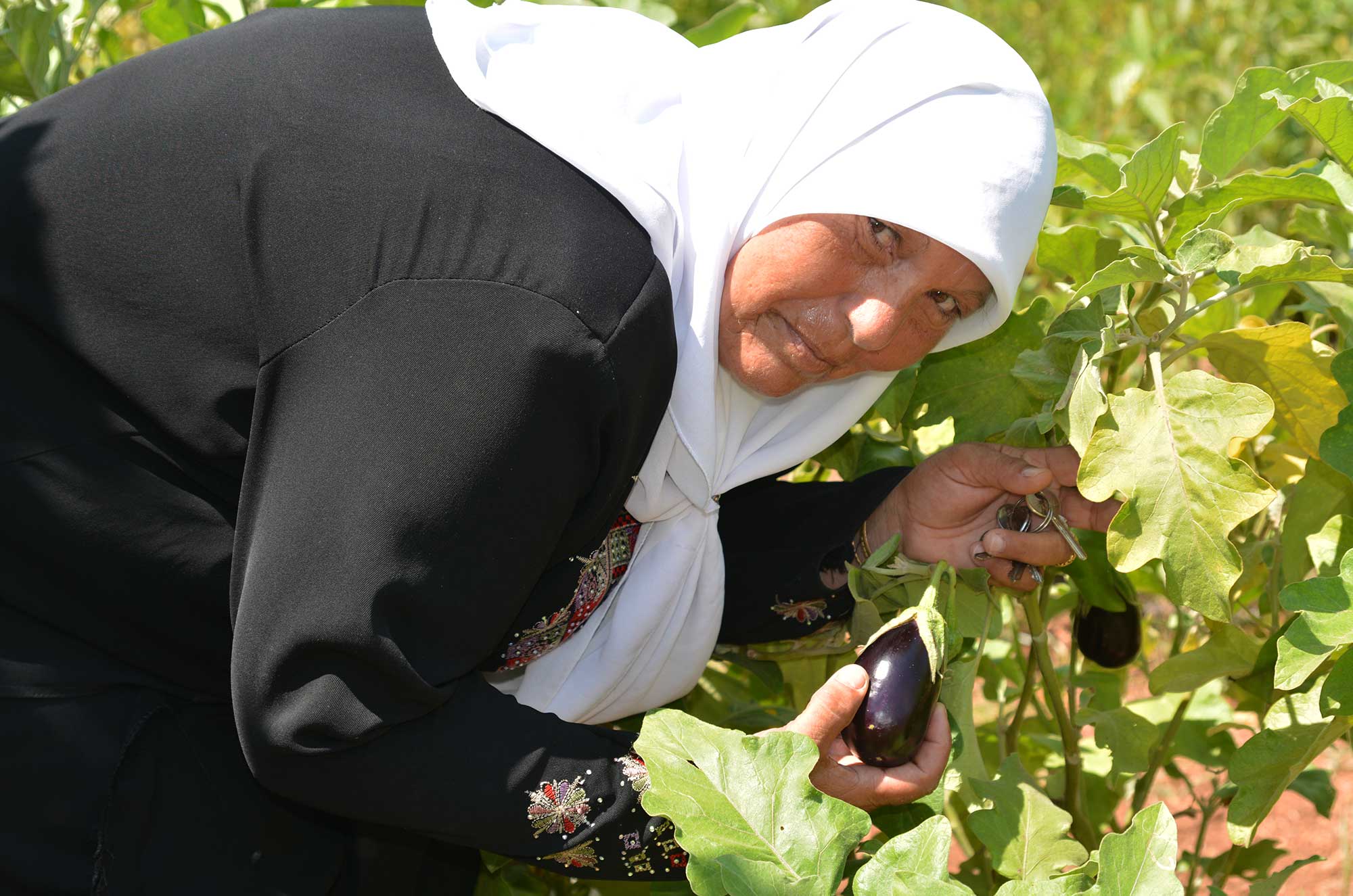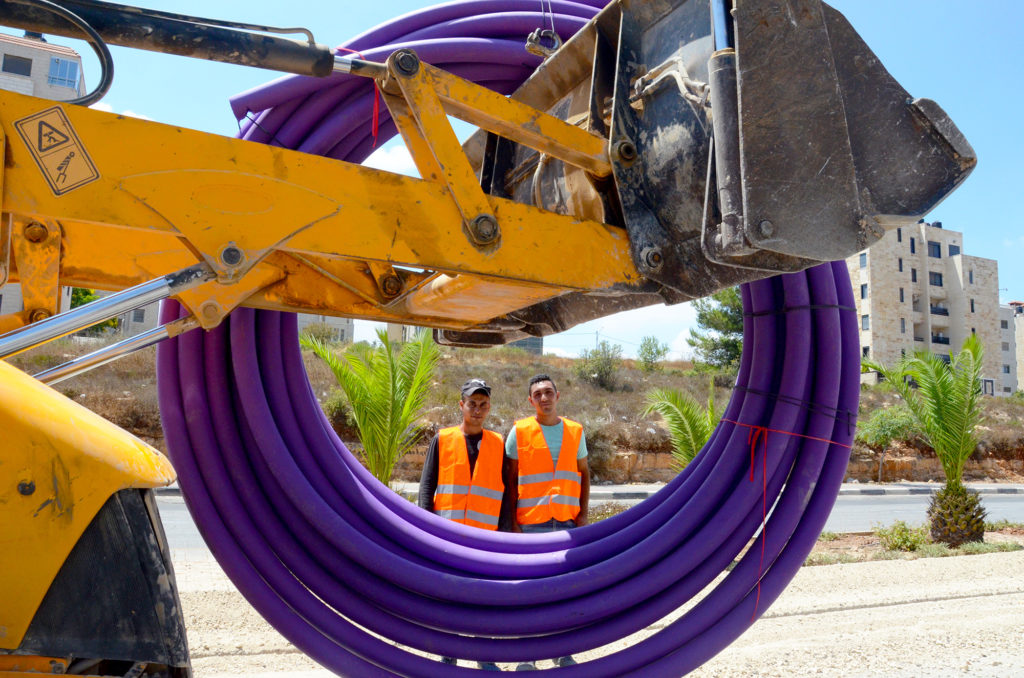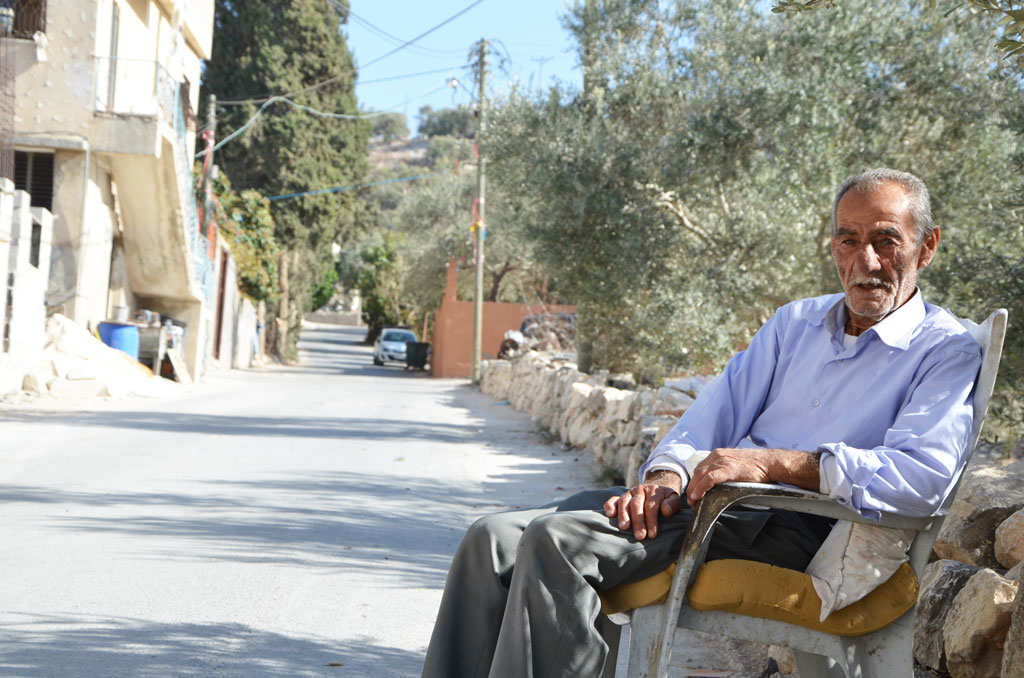Jan, 2016
Halime Qatanani, a 57-year-old Palestinian grandmother, spent most of her days cleaning her house.
For the health and wellbeing of her family, it was necessary. Still, cockroaches would crawl around the living room floor and a strong odor prevented friends from stopping by for tea or lemonade. The problem, of course, was the sewage.
Halime lives in Habla, a rural Palestinian village near Qalqilya in the West Bank.
Like nearly half the houses in Habla, Halime’s house was not connected to a sanitation network. Instead, sewage was collected in a small cesspit near the entrance of her house. And often it would overflow.
The winters were the worst time of year for residents of Habla, due to the heavy rains. Halime explains:
“You should have seen me when the rain made our cesspit overflow into the house. I was frantically cleaning. I would call a company to pump the sewage from the cesspit, but it always took them forever to arrive.”
The problem was not much better during the summer. The smell was worse, attracting flies, cockroaches and mosquitoes. And since residents used more water in the hot summer sun, the cesspit would fill up more quickly, and once again it would overflow into the house and street.
Problems from Lack of Water and Sanitation in Palestine
Because of the high demand for their services, sewage pumping companies would usually arrive hours late. “They would pump out the sewage and discharge it in an open space in a nearby valley. They charged me between $12 and $24 each time.” Halime says. “I had to do this every two weeks in the winter. It was exhausting and expensive.”
For nearly half of the 7,000 residents living in Habla, multiple households had to share the same cesspit, which led to other concerns. Halime explains: “I constantly fought with my relatives, trying to convince them to limit their water consumption habits because we shared the same cesspit. We had to keep the situation under control.”
Even worse, Halime was always scared to allow her grandchildren to play outside with the cesspit there. She knew they could contract illnesses and various diseases. “I would panic and make them play inside,” she says.


Improved Infrastructure Gives Palestinian Women More Time
One year later, a lot has changed for Halime and many of her neighbors. She reflects on how much of her time she lost to cleaning and constant worrying. “You know, I could not have continued wasting my time on this. My husband is sick and I have a big family with almost 20 people living in a single three-story house. It was not until my house was connected to the sewage network that I found time to take better care of my family and tend to our small piece of land.”
Halime’s house was one of 450 that Anera connected to a sewage network last year as part of a larger Palestinian water and sanitation project. The network discharges sewage safely to a treatment plant. Now, all 7,000 community residents are connected.
Rather than pay almost $40 a month to pump her cesspit, she can put that money toward her other bills. Now that she has the time, she’s even generating a modest income from her farming.
She proudly shows off her fresh, yellow guavas. “These guavas are the first harvest pickings from my land. Eat them! Qalqilya has the most golden and sweetest guavas. I now have time to plant guavas, lemons, eggplant, sweet peppers and mulukhiya [a green spinach-like leaf].” Stroking her grandson’s head, she continues, “Not only am I able to earn a modest living now, but I feel more connected to my land.”
Without worrying about the constant cleaning or lingering odors, Halime sits, relaxed,in her front yard. “I can now enjoy a lovely family gathering in this clean yard and in the summer I will drink some lemonade outside. Even neighbors ask to come and join,” she smiles. “I am so relieved.”


